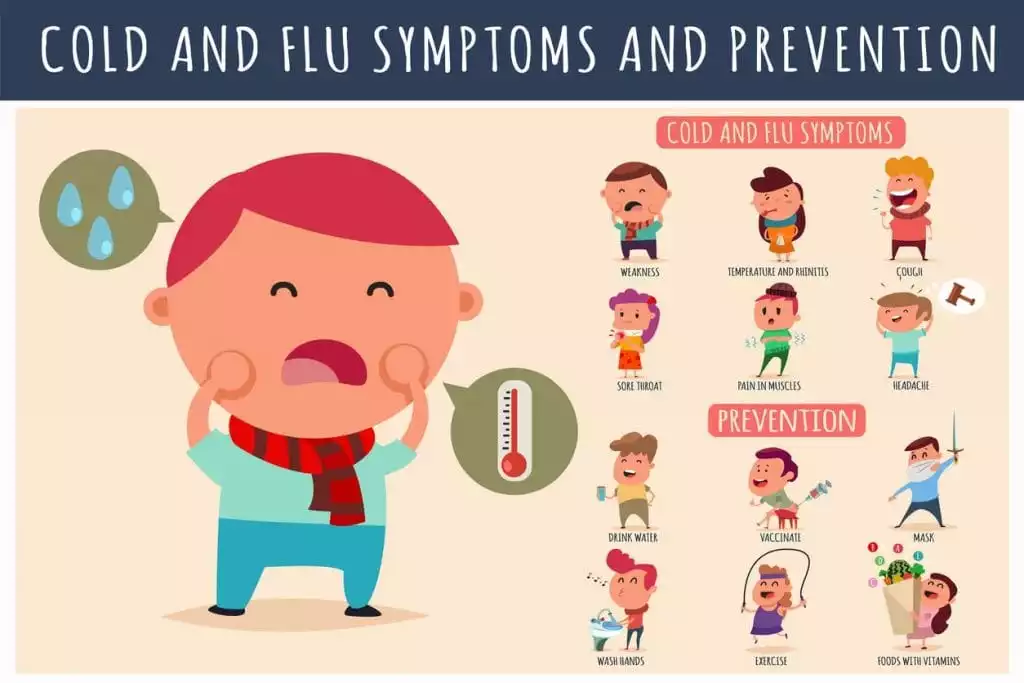
Each year in the United States, up to 20 percent of the population contracts one or more forms of influenza (also known as “the flu”), but there are essential steps available for surviving flu season.
20% of the population is a lot of people suffering from the flu! And, another 20,000 pass away as a direct result of complications from the disease – a number that unfortunately seems to be on the rise.
People who contract influenza often experience a variety of symptoms, including:
- Fever
- Coughing
- Moderate to severe aches and pains
- Nasal congestion
- Headaches
- A terrible feeling of general malaise
- Some people experience long-term fatigue and exhaustion for weeks or even months after getting well
For a few special populations, such as the elderly and infirm, the flu also carries a risk for extremely serious complications, including seizures, pneumonia, and death.
The Key to Surviving Flu Season
It’s easy to see why the thought of surviving flu season can inspire a lot of anxiety and panic. But the truth is that while the flu will always be a risk, there’s no reason to become so afraid of it that you hide from the world. In fact, growing so fearful of it that you avoid the very solutions that help you stay well (such as getting a flu shot, which we’ll talk about next) might even increase your risk rather than limiting it.
So what should you do, anyhow? It’s best to take a good, sensible approach to avoiding the flu that combines basic self-care with a little medical intervention. Start by:
- Getting plenty of sleep
- Eating a healthy diet
- Staying hydrated,
- Getting a little exercise every so often, too
- Then, follow the advice in the next few sections.
1. Get a Flu Shot
The best advice we can give you about avoiding the flu is also one of the easiest and simplest: get a flu shot.
The Centers for Disease Control and Prevention (CDC) recommends that people get vaccinated yearly for the flu as soon as they reach six months of age. The risk for side effects is extremely low – almost one in a million or less – making this a fast, easy, and accessible option for preventing the flu.
Getting vaccinated is especially important for:
- Young children
- Seniors
- Pregnant women
- Children under five
- Anyone who suffers from a chronic illness
This is because their risk for dangerous complications is higher than the average person.
Some people cannot be vaccinated due to age (under six months), allergies, or because they are immunocompromised. Ensuring that the people who spend time around them most often are vaccinated can still help because it reduces the risk that someone will pass along the flu inadvertently. This is referred to as herd immunity.
It’s fast and easy to get vaccinated, too. In fact, all you have to do is call your local pharmacy and/or your G.P. to schedule an appointment. Your local Department of Public Health may provide flu vaccines at a low cost, too.
2. Keep It Clean
Next to vaccinations, keeping your environment (and yourself) clean is the best tip for surviving flu season. Wash your hands often using soap and very warm to hot water. If you don’t have access to a sink, rely on a hand sanitizer containing alcohol, instead.
Also be mindful of what you touch when you’re out and about. For example, if you’re heading out for groceries, bring a pack of sanitizing wipes and wipe down the handle before you touch it. Use a paper towel to flush public toilets, turn sinks on and off, and open bathroom doors.
No matter how clean you are, try to avoid touching your face (especially your nose, mouth, and eyes) while you’re out. This limits the number of germs that make it into your body while you’re out and about.
At home, use sanitizing wipes designed for home cleaning (e.g., Lysol wipes) to cleanse doorknobs, handles, surfaces, countertops, and appliances. If anyone does happen to bring something home, this will help eliminate it.
3. Cover It Up
Cover your mouth when you cough, but don’t cough into your hand. Cough into your elbow instead; this will prevent you from spreading germs to the next thing you touch while in public. A tissue or handkerchief is even better if you have it on you.
Heading into a public space where the flu risk is especially high? Maybe you’re going to the mall for a little Christmas shopping or even flying on a tightly packed airplane or train. Consider wearing a medical mask; it might look a little funny, but it’s a really effective way to prevent airborne germ transmission.
4. Contain Yourself
When the risk of contracting the flu is highest – at the peak of flu season or when there is a local breakout, for example – avoidance is a reasonable option. Stay away from busy areas and crowds, and avoid hospitals or doctor’s offices unless you really need care.
Be mindful of your own risk for spreading germs if you become sick yourself, too. Inform the people around you and stay home. Tell your doctor before you come in when you schedule appointments; they may want to schedule you in at the end of a day to limit the risk of transmission to sensitive patients.
5. Seek Medical Attention
What if you already believe you’ve contracted the flu? Step one is to drink plenty of fluids and get plenty of rest. This is still the very best way to treat any form of influenza in the early stages; it may be enough to help you bounce back.
Try your best to eat, even if you don’t feel like it, and engage in relaxing hobbies you can enjoy without exhausting yourself. This is a great time to watch a little TV!
However, there is a point at which you should seek medical attention. If your symptoms become intolerable, if you have difficulty breathing, if you experience severe vomiting or diarrhea, or if you have a fever greater than 100, call your doctor or head to your nearest emergency room right away.
These symptoms may be a sign that your influenza is growing worse or that you are suffering from a different illness.
Conclusion
Unfortunately, it looks like the flu is here to stay, but luckily these tips for surviving flu season can help you and your loved stay healthy, even during the winter months.
Looking to schedule your flu shot? Give us a call today!

 info@burtsrx.com
info@burtsrx.com


